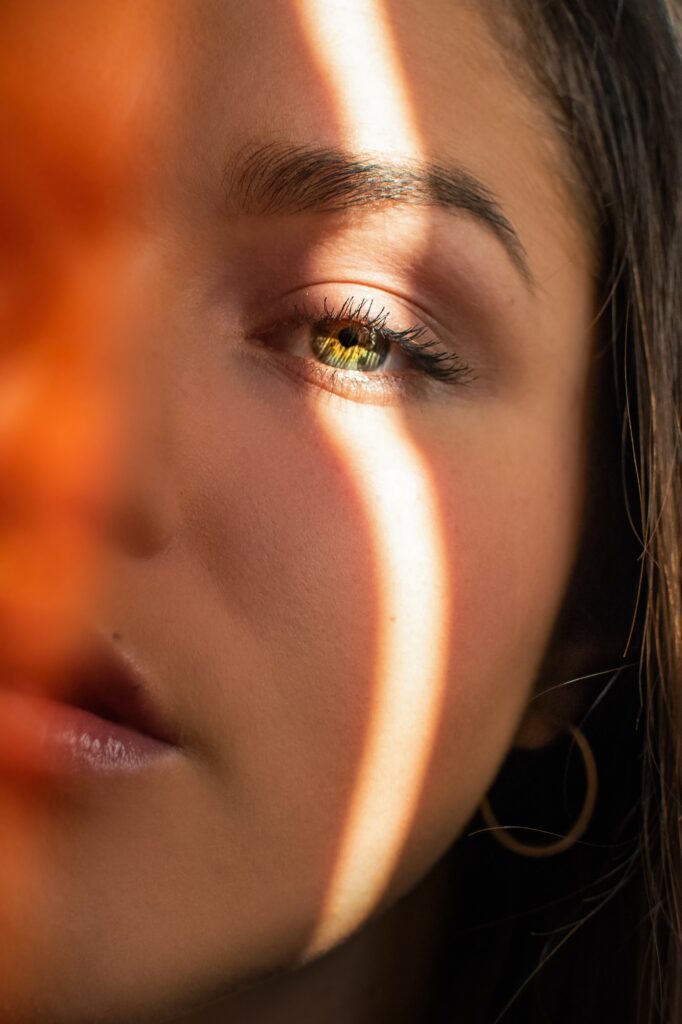We’re all familiar with beauty filters that present faces as “perfect,” altering facial shapes and blurring skin tones. Despite knowing the extent of their dramatic transformations, we continue using them, acknowledging some filters as enjoyable. However, it’s crucial to recognize that filters distorting facial features have known effects on behavior.
A 2019 study examining the link between self-esteem, social media, and plastic surgery found that users of Instagram filters showed increased interest in cosmetic procedures (*). Despite our inclination to do whatever we believe is right for our bodies, understanding the motives behind pursuing these changes is essential.

Are we chasing something unreal and unattainable? Media psychologists argue that extensive filter use can lead to social anxiety and damage self-esteem. If our standard is an artificially created “perfect” version, we can never feel “good enough.”
So, what does all this mean for our future? Will beauty filters remain a habit despite understanding their harms, or is change on the horizon?
Why Do We Use Beauty Filters?
Using beauty filters alters one’s appearance – a clear fact. What may not be obvious is the physiological response driving the desire to use them.
Neuropsychologist Sanam Hafeez, PsyD, likens the effect of beauty filters to addictive substances like cigarettes and gambling. “Filters can trigger the reward center in the brain, activating the dopamine pathway and encouraging behaviors that seek ‘rewards’ related to aesthetic and social approval,”
She says. Even though people are aware of their potential harm, LCSW Dana Myers notes that filters act as positive reinforcements in the brain.
Experts argue that our brains weren’t designed for social media. Likes and comments create social validation, making everything seem more important in terms of social norms. Images manipulated on platforms like Instagram can trigger emotions before our brains process them. Therefore, it’s crucial for social media users to be aware of these emotions and take time to process them.
What Do People Think About Beauty Filters?
With existing knowledge about the impact of beauty filters on mental health, people are divided in their attitudes toward using these filters. Many celebrities, as you’ve likely noticed, have reduced or completely abandoned using filters to showcase more natural images.
However, some see filters as a means to feel more polished (as a substitute for makeup), alter minor aspects of appearance (erasing signs of puffiness), and even cope with advanced insecurities.
What’s Next?
If nothing changes, professionals predict increased pressure on mental health. Myers, as a therapist, notes an observed rise in anxiety disorders related to social media. “We’ll continue to see increased body dysmorphia and body image issues due to unrealistic or unattainable beauty standards resulting from beauty filters,”
She says. “Given the prevalence of cancel culture in today’s society, negativity online, such as bullying, labeling, or name-calling, may increase. It can be extremely unhealthy or toxic.”
Hafeez also adds that the growing interest in plastic surgery associated with beauty filters could lead to additional issues in the future. “The problem with this interest in plastic surgery – aside from invasive surgery, cost, and complications – is the never-ending quest for an unrealistic self-image,”
She says. “This could lead to a global decline in a healthy self-image, with associated social-emotional, psychological, and relationship factors.”

What Can We Do?
Understand that beauty filters uphold specific beauty standards. Most filters enhance European-centric beauty standards by slimming jawlines, narrowing noses, enlarging lips, and lightening skin tones. Increasing awareness, education, and honest discussions about the history of beauty standards as a society are crucial.
Choose your feed wisely. Being mindful of the media you consume can be key to maintaining your confidence. Assess the content you follow and ask yourself if it inspires you or makes you feel insecure.
Take social media breaks. When it comes to preserving your mental health, short breaks can be valuable. Start by taking a few hours away from social media and gradually extend this time over days.
